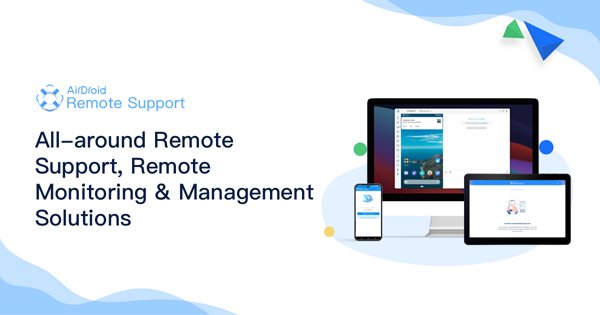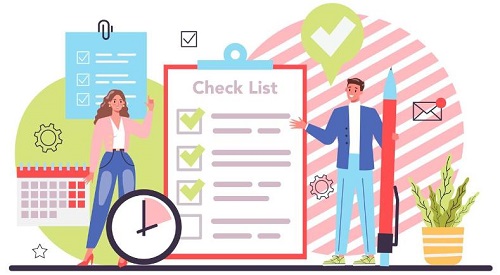How to Reduce Stress While Working from Home [10 Practical Tips]
Are you a remote worker working away from the office in the serenity and comfort of your home? You are not alone. Working from home has become common today. Many of us sit in workplaces away from our offices and coworkers.
A remote worker often comes across the feeling of being feeling alone. The other stress-causing factors include distractions at home and much more. Therefore, just like in the case of the office, the workers need to learn how to cope with the stress of working from home.
If you want to learn how to eliminate this stress, you are at the right place. We will give you all the necessary information to enjoy stress-free remote working.
Part 1: What Are the Stresses Associated with Working Remotely?
Suppose you want to work comfortably without commuting between the office and home. Working from home is a dream. However, you may encounter unexpected stressors. Here are the major stresses related to working remotely.
Feeling of Isolation
Feeling Isolated bothers you a great deal. Unlike the traditional office environment where chats over a cup of tea, lunch breaks while working, and more allow staying relaxed, the domestic setup has nothing to offer.
After long working hours, you may start experiencing loneliness and isolation. In addition, working in offices makes you feel like a team. At the same time, you develop the feeling of being detached and less motivated at home.

Lack of Set Routine
Losing a set routine can be disorienting. The lack of a commute might mean extra sleep. Still, it can lead to irregular sleep patterns, leaving you feeling unrested.
Regular physical activity may also fall by the wayside, as you're no longer walking to meetings or to and from your car or public transport.
Home Distractions
There is so much to distract you in the home, from laundry piling up to the kitchen waiting or the kids crying. The distractions can increase if you have pets running around or thinking to get your attention. These distractions together cause stress due to a lack of a professional working rhythm.
Work-Life Boundaries
Blurring work-life boundaries is another stress factor. Drawing a line between work and personal time is challenging when your home also serves as your office.
You may check emails late at night or continue to work on projects outside of typical work hours. This can lead to a feeling of work consuming your life.

Communication Problems
Communication complications also arise. When we mostly chat through texting, it's hard to pick up on all the little hints and gestures that come with talking in person. Misunderstandings happen more easily.
Plus, tech troubles like a bad internet connection or app problems can mess things up and make it frustrating to get work done.
Health Challenges
Health concerns are notable as remote work typically means a more sedentary lifestyle. Sitting for extended periods can affect your posture and overall health. Eye strain is also a concern, with the constant exposure to screens potentially leading to discomfort and vision problems.
Lack of Motivation
Motivational challenges are more prevalent. The absence of a bustling workplace environment makes it hard to find the energy and drive you'd normally feed off from colleagues.
Goals may also seem more abstract when not in a traditional office setting, with less immediate feedback and fewer visible milestones.

Understanding the issues helps us fix these problems. Once these problems are settled, it will reduce stress and help you work better from home. Scroll down to check for tips to deal with the issues. These easy-to-follow steps will make your remote work awesome and easy.
Part 2: 10 Practical Tips to Reduce Stress While Working from Home
Nowadays, working from home is the new normal for many folks. Sure, it's cozy being in your own space, but it can also bring its own set of headaches that pile on the stress. But don't worry—we've got your back!
Here are ten tried-and-true tips that aren't just fancy theories—nope, these are real-deal strategies that have been tested to help you navigate those rocky, remote work waters like a pro.
Keeping in Touch with Colleagues or Friends
Working from home can get lonely sometimes, and that isolation can start messing with your headspace. That's why finding ways to feel like part of the crew is so important. Hopping on regular video calls with your work buddies can help recreate that office vibe, allowing you to chat and catch up like you're all hangin' in the break room.
Those little impromptu chats bring the team together and make you feel like you're all in this thing together. These interactions reinforce professional relationships, fostering a supportive work environment.
Proactively Seeking Support and Guidance
Working from home can sometimes present technical problems or work challenges, such as network issues, software glitches, or unclear instructions. These problems can cause frustration, anxiety, and confusion and affect your work quality and efficiency.
To avoid this, you can proactively seek support and guidance from technicians or colleagues whenever you encounter difficulties or doubts. You can use remote support software, such as AirDroid Remote Support, to get help and receive guidance from experts or peers.

AirDroid Remote Support allows technicians to view the screen of your mobile device and also allows them to remotely control your device if needed. AR camera, tutorial gesture and live chat are also great tools. By using this app, you can solve your problems quickly and easily and reduce your stress.
Designate a Workspace
Your workspace is more than a physical location; it's also a psychological one. A well-organized and dedicated workspace can reduce distractions, allowing for more focused and productive work periods.
This physical separation is crucial for mental separation, helping you to 'switch off' from work mode and avoid the stress of feeling like you're always at work.
Establishing a Daily Routine
A consistent routine sets the tone for the day, giving you control over your schedule and work-life balance. This predictability can reduce anxiety and make an otherwise unstructured work-from-home situation more manageable.
A routine also includes scheduled breaks, ensuring you step away from work and recharge, which is crucial for avoiding burnout.

Incorporating Physical Activity
Exercise is a perfect solution. You can opt for a short walk, stretching, or a workout. As you start doing the physical activity, you will find the difference in your life.
It breaks up your day, gets your blood flowing, and shifts your focus away from work. Regular exercise is good for better sleep quality.
Eat Healthy
Stress is one of the causes of unhealthy eating habits like snacking or missed meals. Make sure to eat healthy. You need to pay attention to what you eat, savor each bite, and listen to your body's hunger and fullness signals. Opting for healthy eating habits will help you fight stress and will let you enjoy overall well-being.
Mindfulness and Meditation
Mindfulness and meditation help you mentally. They improve the focus by training your brain to be present and less reactive to the stress coming your way. It will improve your stress response for a long time.

Setting Work-Life Boundaries
Clearly defined work hours and expectations help manage demands from colleagues and clients. Communicate your availability and stick to it. This clarity reduces the stress of overcommitment and helps maintain your time as your own.
Concentrate on Personal Growth
Make sure to give time to personal development. This will help you create a balance between work and life. You can try an online course, a creative hobby, or reading. If you invest in yourself, you can improve job performance, personal satisfaction, and stress resilience.
Using Task Management Tools
Using task management tools can help in reducing work stress. Most of these are free and have user-friendly features.
They allow you set reminders, make checklists, and organize the way you do the work. They are like the personal assistants who help you in accomplishing your goals.

These enhanced tips, with their actionable steps, offer a blueprint for a healthier, more balanced remote working experience. Use the above tips in your daily life. You will see how they will reduce stress and increase overall happiness. You will also witness an increase in productivity while working from home. Do not ignore your well-being in remote work, as it is the foundation of your success.
Part 3: The Importance of Dealing with Stress While Working from Home
Managing stress in a remote work environment is very important because:
- Too much stress is the cause of health problems like heart disease, high blood pressure, diabetes, anxiety, or depression. Staying away from stress can prevent these conditions, and maintaining overall well-being is vital.
- Stress can make it difficult to concentrate. However, if we manage stress, it becomes easy to clear our thoughts, boost our focus, and increase productivity.
- Too much stress results in mood swings. It makes it difficult to enjoy daily chores. If you can control stress, you can stay positive and enjoy your work and personal lives.
- Stress reduces energy and can make you lazy or unmotivated. Fighting stress helps you gain positive energy. You can feel motivated to handle daily tasks and move ahead towards your goals successfully.
- Stress results in irritability, short temper, and strain in relationships. Managing stress helps you stay calm. It can also improve interactions with family, friends, and colleagues, allowing you to enjoy a supportive home environment.
- When stress is less, your work quality improves. There are fewer chances of making mistakes. You can think more creatively and produce higher-quality outcomes.
Managing stress is important for health, happiness, and productivity in remote settings. Try simple exercises, maintain social connections, practice mindfulness, and establish a comfortable work environment. All these can make a difference. Pay attention to stress management. It is just like investing in your professional success and personal contentment.
Wrap Up
In navigating the remote work landscape, it's crucial to address the stresses that can accompany it. Feeling isolated, battling distractions, and blurring work-life boundaries are common hurdles.
However, practical strategies can help alleviate these challenges and enhance productivity. Managing stress isn't just about productivity—it's an investment in overall well-being and professional success.






Leave a Reply.